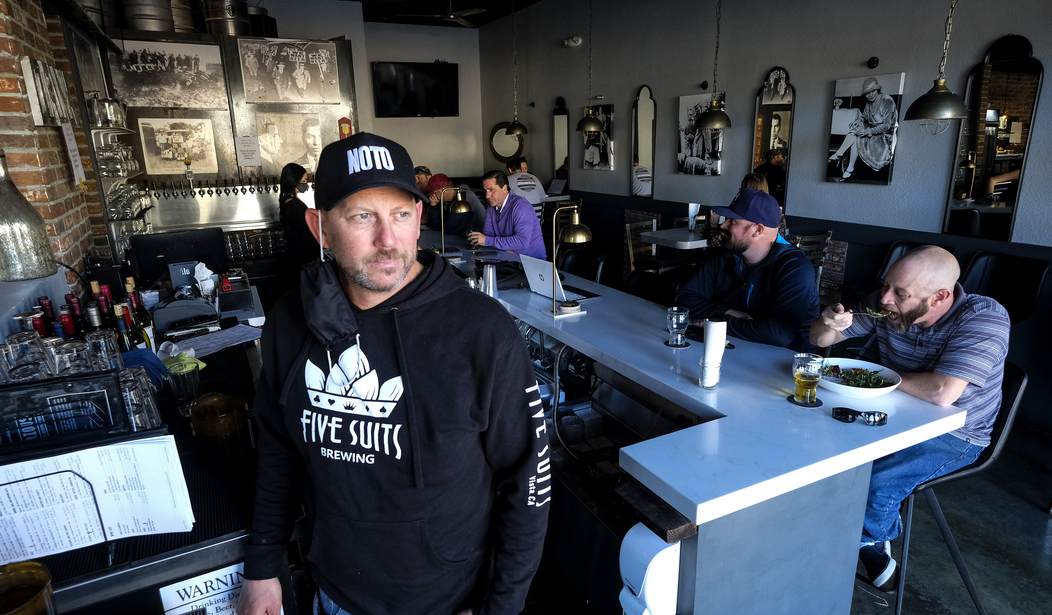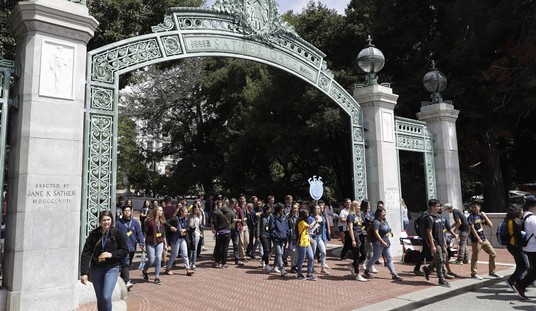When the American Rescue Plan Act was passed, it contained a special program to help restaurant owners who had been placed in financial peril by the government-mandated COVID shutdowns. Administered through the Small Business Administration, the program is known as the Restaurant Revitalization Fund (RRF). The RFF offered grants and forgivable loans to the owners of eateries who fell into that category. But the way the SBA under the Biden administration planned to roll it out contained a poison pill for many owners. Anyone could apply for the program, but businesses owned by women and minorities would be placed in a priority queue to receive relief first. In other words, if you happened to be a white, male restaurant owner, you were sent to the back of the line to hope that the fund wouldn’t be dried up by the time your turn came.
This led a few of the aforementioned white, male owners to go to court and ask for equal treatment. In a pair of cases decided in just the past week, it looks like the courts agree that such gender or race-based systems of distribution are unconstitutional. The appeals will continue, however. (Wall Street Journal, subscription required)
The Biden Administration’s effort to distribute federal benefits by race is already running into legal trouble. Two rulings last week sided with plaintiffs who sued the Small Business Administration for violating equal treatment under the law.
At issue is the SBA requirement that only applications for restaurant relief from women and racial minorities will be processed in the first 21 days, sending everyone else to the back of the line. As the courts recognized, the danger is that the SBA will run out of funds before these other applications can be considered.
A federal judge in Texas ruled that the SBA’s Restaurant Revitalization Fund was wrong to distribute $28.6 billion in Covid-19 relief on the basis of an owner’s sex and race.
In the first Texas case, Jason and Janice Smith are the owners of the Blessed Cajuns restaurant. They lost over $350K in revenue while being shut down. Another plaintiff, Eric Nyman, lost more than $800K. In a second case in Tennesee, Antonio Vitolo is the half-owner of an establishment named Jake’s Bar and Grill, which also took a beating during COVID and went to court over this. In both cases, the courts sided with the plaintiffs and granted an injunction against the disbursement of the SBA funds.
In each of these cases, there are two layers to the racial and gender issues being debated. It’s true that Jason and Janice Smith are white, but they are co-owners. Janice Smith is a woman, so why doesn’t she qualify for the preferred treatment? Even more to the point, Antonio Vitolo may be white, but his co-owner is also his wife. She’s not only female but Hispanic to boot. And yet both of the women were apparently denied preferential treatment because they were married to white males.
That factor probably shouldn’t be the primary consideration in these cases, though. The bigger question is why anyone is getting preferred, head-of-the-line treatment. When the Civil Rights Act was passed, ensuring that no one would abridge the privileges or immunities of citizens of the United States, there was no clause added on saying, ‘unless they be white.’ Equal treatment under the law is supposed to be precisely that… equal.
The Biden administration is attempting to make the argument that the Supreme Court has granted exceptions to that rule in the past, and it’s true. There have been exceptions made for racial preferences when they are enacted “to remedy past societal discrimination.” But the court was also very specific to note that the governmental entity creating the racial preferences had to be able to point to a specific episode of past discrimination and demonstrate that the discrimination was both intentional and perpetrated by the government. The judge in the Tennesee case found that the SBA program failed that test on all three counts.
None of this would likely have become an issue if the RRF had been set up as an ongoing program that could have been terminated by Congress through a follow-up bill. Instead, they created a finite fund that was clearly far smaller than would be needed to accommodate every restaurant and bar owner impacted by the shutdowns. That created a sprint where all the affected owners will be racing to get a piece of the fund before it dries up. (Which it will, and rapidly.) By coming in after the fact and assigning priority status to only some owners based on race and gender, a large number of owners will be shut out of the program. So now the administration has another hot mess on its hands and the fault lies entirely with Congress and the way they crafted the RRF.








Join the conversation as a VIP Member